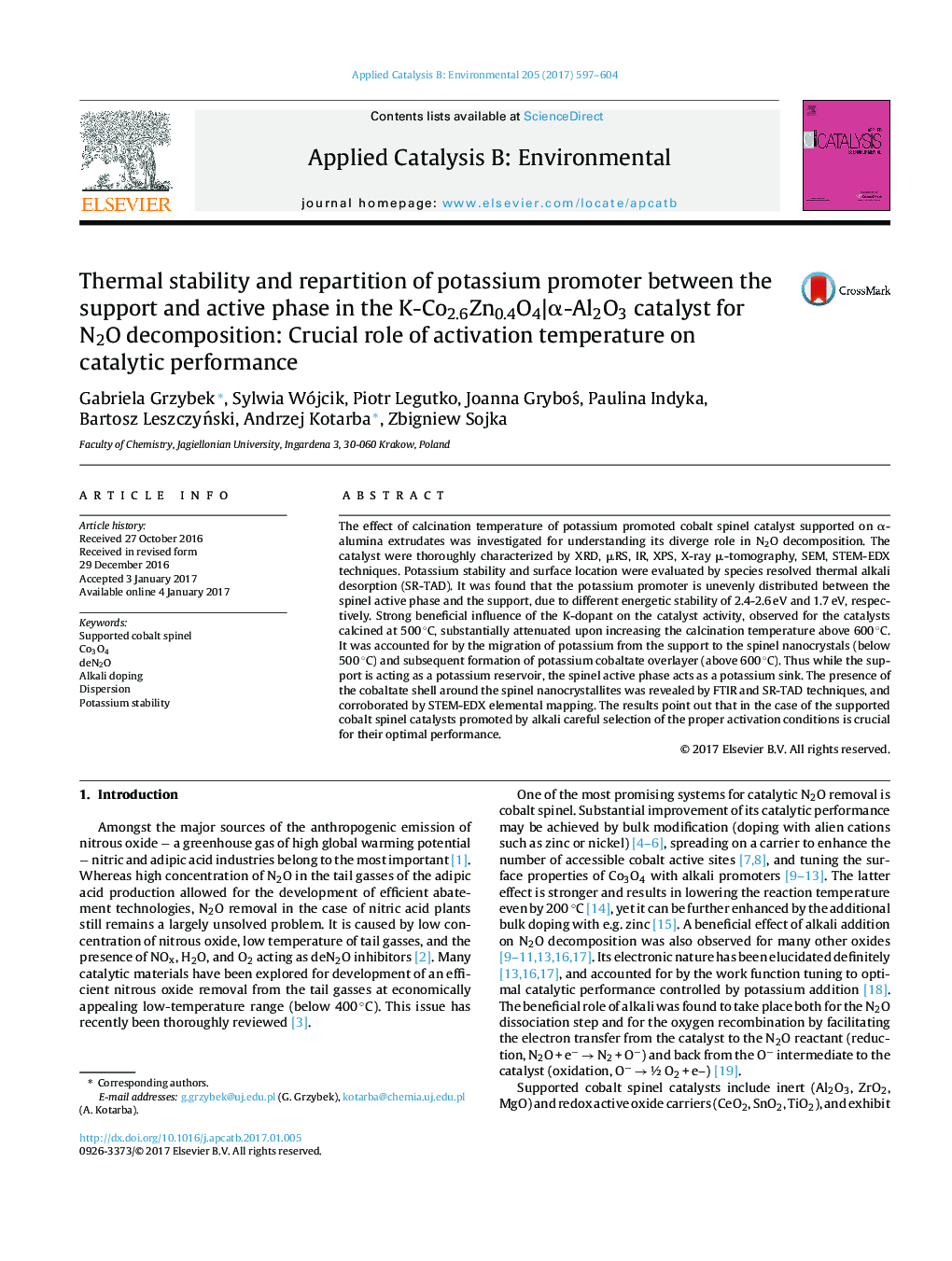| Article ID | Journal | Published Year | Pages | File Type |
|---|---|---|---|---|
| 6454397 | Applied Catalysis B: Environmental | 2017 | 8 Pages |
â¢Crucial role of activation temperature on K/Zn0.4Co2.6O4|Al2O3 deN2O performance.â¢K migration from the support to the spinel nanocrystals upon temperature increase.â¢KxCoO2 overlayer formation deteriorates catalyst activity.
The effect of calcination temperature of potassium promoted cobalt spinel catalyst supported on α-alumina extrudates was investigated for understanding its diverge role in N2O decomposition. The catalyst were thoroughly characterized by XRD, μRS, IR, XPS, X-ray μ-tomography, SEM, STEM-EDX techniques. Potassium stability and surface location were evaluated by species resolved thermal alkali desorption (SR-TAD). It was found that the potassium promoter is unevenly distributed between the spinel active phase and the support, due to different energetic stability of 2.4-2.6 eV and 1.7 eV, respectively. Strong beneficial influence of the K-dopant on the catalyst activity, observed for the catalysts calcined at 500 °C, substantially attenuated upon increasing the calcination temperature above 600 °C. It was accounted for by the migration of potassium from the support to the spinel nanocrystals (below 500 °C) and subsequent formation of potassium cobaltate overlayer (above 600 °C). Thus while the support is acting as a potassium reservoir, the spinel active phase acts as a potassium sink. The presence of the cobaltate shell around the spinel nanocrystallites was revealed by FTIR and SR-TAD techniques, and corroborated by STEM-EDX elemental mapping. The results point out that in the case of the supported cobalt spinel catalysts promoted by alkali careful selection of the proper activation conditions is crucial for their optimal performance.
Graphical abstractDownload high-res image (235KB)Download full-size image
